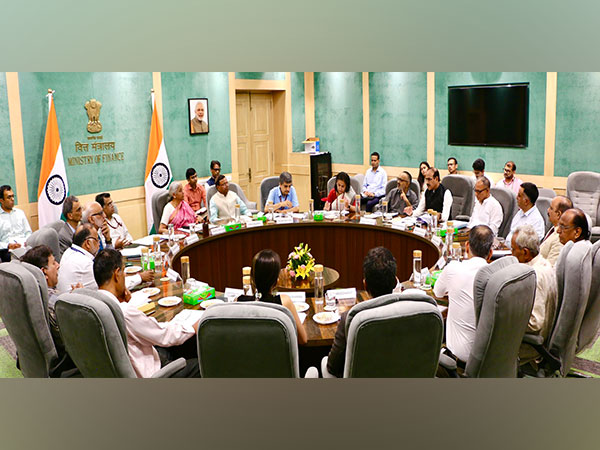
New Delhi: In a pre-budget meeting with Indian Union Minister for Finance & Corporate Affairs Nirmala Sitharaman, the Kisan lobby advocated for lifting the ban on exports of several agricultural products.
Representatives from farmer associations and agricultural economists met with Finance Minister Nirmala Sitharaman ahead of the forthcoming General Budget 2024-25 in New Delhi on Friday.
During the two-hour consultation meeting, also attended by Union Minister of State for Finance Pankaj Chaudhary, the Finance Secretary, and senior officials of the Agriculture Ministry, the farmer lobby called for the immediate lifting of bans on all agricultural products.
MJ Khan, Chairman of the Indian Chambers of Food and Agriculture, emphasised the need to lift the export bans.
"Our agri-export share is only 2 percent in global agri exports. Due to the ban on some agricultural products, our exports have fallen. India faces a USD 4 billion cut in agricultural exports due to trade restrictions on staples like wheat, rice, and sugar. We need to avoid knee-jerk reactions and focus on creating export hubs," he said.
Agricultural economist and distinguished professor at ICRIER Ashok Gulati highlighted the surplus in rice stocks held by the Food Corporation of India (FCI), suggesting that opening up rice exports should be prioritised. He also stressed the need to lift the ban on onion exports immediately.
Badri Narain Chaudhary, President of the Bhartiya Kisan Sangh, called for a long-term agricultural policy and improved data collection in the agriculture sector.
"We don't have any agriculture policy. The government should start collecting data on the agriculture sector," he said.
According to the Agricultural and Processed Food Products Export Development Authority (APEDA), there has been a noteworthy 9 per cent decline in exports under its ambit.
The export bans undertaken by the Government of India aim to balance consumer affordability and support the agricultural industry amidst rising retail prices.
Compelled by escalating retail prices of key agricultural products such as rice, wheat, sugar, and onion, the government implemented measures to curb the upward trend.
In a pivotal move in July 2023, exports of all non-basmati white rice were prohibited to address concerns related to rising prices.
Additionally, a 20 per cent duty on parboiled rice exports was introduced, initially until October 2023. Recognizing the ongoing need for stabilization, this duty was extended to March 2024.
These interventions were designed to strike a balance between ensuring affordability for consumers and supporting the agricultural industry.